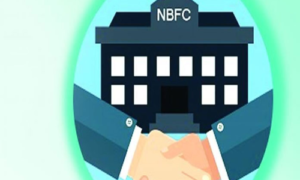In the journey towards financial security and success, the role of a savings bank account cannot be overstated. While it may seem like a routine task, opening a savings bank account is the first step towards cultivating essential financial habits that can shape a brighter future.
Financial wisdom isn’t innate; it’s acquired through time and effort. By adopting key habits, individuals can set themselves on the path to long-term financial well-being.
Importance of Savings Account
A savings account serves as a safe and reliable avenue for individuals to securely store their funds while earning a consistent interest. With the assurance of electronic banking systems, the safety of savings accounts provides peace of mind to depositors. Not only does a savings account offer a place to accumulate funds, but it also instills financial discipline by discouraging unnecessary spending and promoting savings towards specific goals. The accessibility of instant payment services enables efficient transactions and withdrawals as needed, further enhancing convenience and flexibility in managing finances.
Savings accounts often come with value-added services such as cashback rewards, insurance coverage, and convenient money management tools like debit cards and online banking platforms. The liquidity of savings accounts ensures that funds remain readily available for use at any time, providing financial flexibility and security. The ease of opening a savings account, including the option for digital account opening, simplifies the process and encourages individuals to take the essential step towards financial stability and wealth accumulation.
Savings Bank Accounts for a Better Future
Diversifying Income Streams:
Relying solely on one source of income can pose risks. Diversifying income through avenues like rental income, dividends, or side hustles creates a more resilient financial foundation. By generating multiple streams of income, individuals can mitigate the impact of economic downturns or job loss, ensuring greater financial stability over the long term.
Automating Savings:
Establishing automatic systematic investment plans (SIPs) from a savings account fosters consistent savings behaviour. Various banks and diverse platforms offer the convenience of initiating multiple SIPs from a single account, simplifying the savings process. Automating savings not only ensures regular contributions but also removes the temptation to spend impulsively, allowing individuals to stay focused on their financial goals.
Curbing Impulse Spending:
Impulse buying habits can derail financial goals. Practising restraint and planning purchases thoughtfully maximise savings and minimise unnecessary expenditures. Budgeting tools, such as tracking expenses or setting spending limits, help individuals curb impulse spending and stay within their financial means.
Continuous Learning:
Financial literacy is key to effective money management. Investing time in learning essential financial knowledge like how to find bank account numbers and skills such as budgeting, financial planning, and understanding investment avenues empowers individuals to make informed decisions about their finances. Online resources, workshops, and professional guidance are valuable tools for expanding financial knowledge and improving financial literacy.
Planning for Retirement:
Retirement planning should begin early in one’s career. A savings account with features like attractive interest rates and additional benefits provides avenues for investing in retirement-focused instruments, setting the stage for a secure retirement. Contributions to retirement accounts, such as a 401(k) or IRA, allow individuals to build a nest egg for their golden years, ensuring financial independence and peace of mind.
Managing Debt Wisely:
While strategic borrowing can be beneficial, minimising debt burdens is essential. Individuals should prioritise becoming debt-free to reduce financial stress and enhance financial freedom. Debt repayment strategies, such as the snowball or avalanche method, can expedite the process of debt elimination, freeing up funds for savings and investments.
Adopting a Long-Term Perspective:
Prudent individuals prioritise investments with sustainable returns over short-term gains. Avoiding quick-fix schemes and focusing on long-term wealth accumulation is crucial for financial stability. Long-term investments, such as retirement accounts or equity investments, offer the potential for significant growth over time, providing a secure financial future.
Harnessing the Power of Savings:
The concept of “money earns more money” underscores the importance of not letting money sit idle. By depositing surplus funds into a savings account, individuals can use the potential to earn returns through interest. Savings accounts provide a secure and accessible avenue for accumulating funds, allowing individuals to build a financial cushion for future needs.
Conclusion
Opening a savings bank account is not just about stashing away funds; it’s about building a foundation for financial resilience. By cultivating prudent saving and investment habits, individuals can chart a course towards financial independence and prosperity. Additionally, with tools like a Digital Savings Account from leading banks such as Kotak 811, individuals can start their journey to financial success with confidence, knowing they have the support they need to achieve their goals.





Be First to Comment